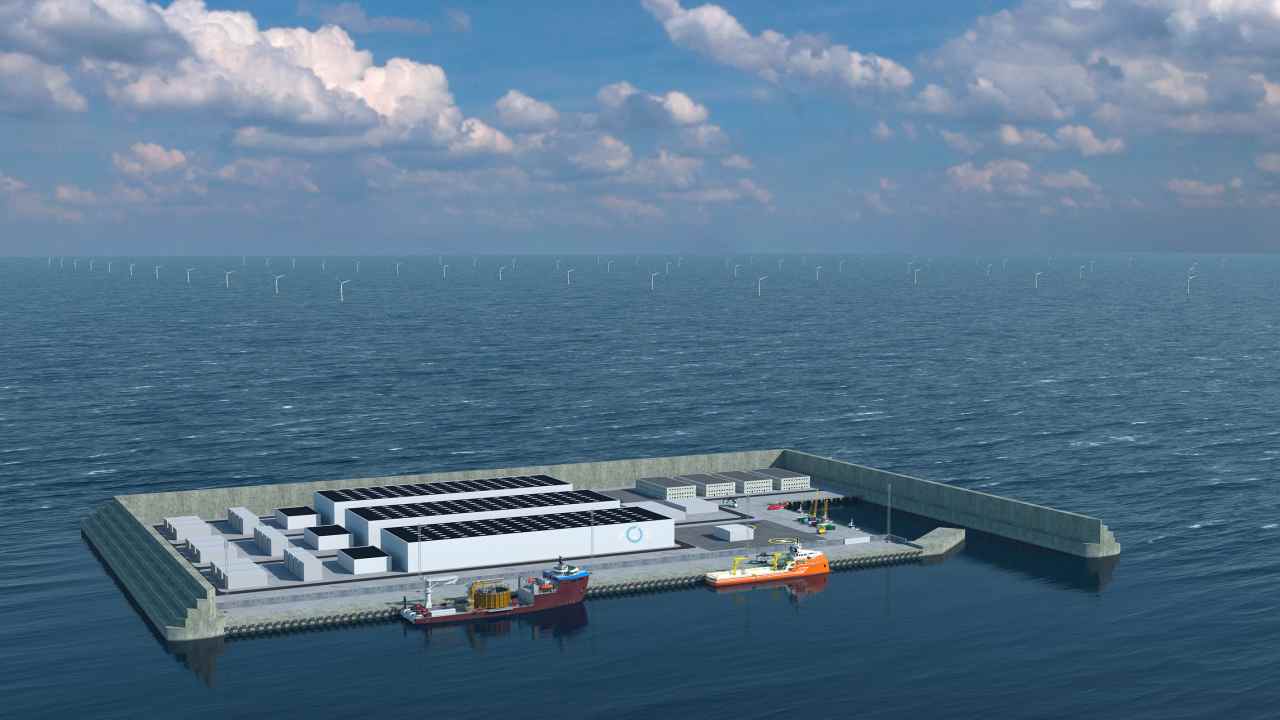The search for an increase in renewable energies is leading countries that are already very advanced, like Denmark, to bet on continuing to accelerate their transition to reduce their dependence on dirty sources. Now the Danish government has just confirmed a huge project that will involve creating a series of artificial islands where wind turbines will be installed and where green hydrogen will also be produced with the excess energy.
The project will be installed in the North Sea and consist of a series of offshore wind farms located approximately 50 miles west of the Jutland coast. A project expected to have about 200 turbines in the first phase of the project will initially consist of about 120,000 square meters and installed power of 5 GW, three times the power installed today.
A first installation that will create enough energy to meet some 3 million people’s needs, and that, according to the Danish Energy Agency, will be followed by a new installation that awaits them, allowing them to reach a capacity of 12 GW.
Of the two energy islands, the human-made example in the North Sea is expected to offer the best expansion opportunities by constructing a port and facilities for the storage and conversion of green electricity from offshore wind turbines.
The Danish Energy Agency said that the project’s long-term ambition was to export the energy directly to the mainland and store the power on the island itself and convert it into hydrogen and send it through undersea cables to Denmark and neighboring countries.
The Danish Minister of the Environment, Dan Jørgensen, has classified this initiative as: “the largest construction project in the history of Denmark. It will make a major contribution to realizing the enormous potential of European offshore wind energy.”
The government has also added that the North Sea project will be carried out through a public-private partnership between the Danish state and private companies and that the state would own most of the islands’ property.
A project that directs Denmark towards reducing its polluting emissions by 70% compared to 1990 by 2030, committing itself to eliminate gas and oil extraction from the North Sea by 2050, canceling now future concessions.

